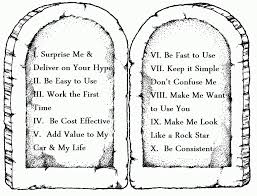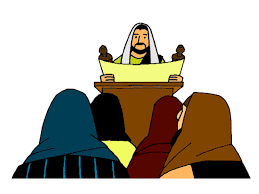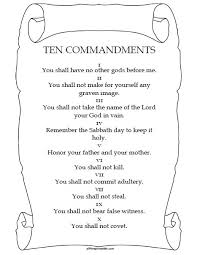Romans 1:24 – Therefore God gave them up in the lusts of their hearts to impurity, to the dishonoring of their bodies among themselves,
In verses 19-31 of Romans chapter one, Paul focuses on the Gentiles. He shows that they failed to acknowledge God when he revealed himself through nature and through their consciences. 
As a result, they were unthankful for the blessings of God. Being unthankful leads to moral failure, the next step in the downward spiral to utter wickedness.
In verses 22-23 we discovered that the rejection of Jehovah also led the Gentiles to degrading and humiliating worship practices. They bowed down to statues of men and women, animals, reptiles and even bugs. Today’s study picks up the story of their continued depravity and descent into wickedness.
GENERAL SUMMARY: The Gentiles dishonored God. In response, God permitted them to dishonor themselves by doing things that are shameful, disgraceful, abusive, wicked and shocking. The specifics of these practices are outlined in verses 24-27.
DIGGING DEEPER: Therefore: Up to this point, Paul has been describing the Gentile’s rejection of God. He has clearly stated that they chose to embrace and worship false idols. The word ‘therefore’ is a signal that we are about to find out what the consequences of these actions will be.
God gave them up: One thing must be made perfectly clear - God did not in any way, shape or form tempt these people to sin. Neither did he induce or encourage or influence them to sin:
James 1:13 – Let no man say when he is tempted, “I am being tempted by God,” for God cannot be tempted with evil, and he himself tempts no one.
From the beginning of creation, God gave mankind the gift of free will. He has never forced us to serve him. He desires worship and obedience that spring up as a natural result of our intense love for him (John 14:15, 23, John 14:10), but he also allows us to reject him, if we choose to do so.
When Paul says God ‘gave them up’ he means that God simply ‘stepped aside’ or removed the restraining influence of his righteousness/holiness from the heathen and allowed them to exercise their free will to do whatever they wanted.
The more the Gentiles ignored the evidence of a divine Creator and the cries of their consciences, the fainter those truths became, until they couldn’t see/hear them at all. They became totally submersed in the lust of their hearts.
In the lusts of their hearts: The heart of man is the source of all wickedness, so once God ‘got out of their way’, the heathen were free to act out the desires and ideas of their vain imaginations and corrupt hearts.
James 1:14-15 – But each person is tempted when he is lured and enticed by his own desire. Then desire when it has conceived gives birth to sin, and sin when it is fully grown brings for death.
As we would expect, evil manifested itself in the decisions and actions of the heathen. Eventually, they would fill up the cup of their iniquity and judgment/death would follow.
To impurities: ‘Impurities’ is a general term that denotes any kind of moral defilement or sin. Paul will give us a whole list of impurities in verses 29-31, but in the meantime, he uses sexual impurity (specifically homosexuality) as an example of man’s ultimate depravity.
Homosexuality is often considered the most vile of sins because it is not found in nature (the animal kingdom); it is only present in man who was made in God’s image.
To the dishonoring of their bodies among themselves: Those who indulged in these lusts and sins did so of their own free will. They were not victims. They were not coerced/forced to abuse themselves, neither did they need to force others. They happily pursued any and every opportunity to engage in the lusts of their flesh.
It was fitting that those who dishonored God should be left to dishonor themselves by doing things that were depraved, scandalous and unnatural to human nature.
I Corinthians 3:16 – Do you not know that you are God’s temple and that God’s Spirit dwells in you?
As Christians, it is important for us to remember that our bodies are members of the body of Christ; we are temples of Holy Spirit. It is our honor to glorify God with our bodies.
Romans 1:25 - …because they exchanged the truth about God for a lie and worshiped and served the creature rather than the Creator, who is blessed forever! Amen.
GENERAL SUMMARY: In this verse the apostle repeats what he said before, just in different words. He does this to impress this important truth upon our minds. Specifically, he wants us to know that God stood aside and left mankind to pursue his own lustful passions because he had already rejected the true God and turned to idols (lies). 
DIGGING DEEPER: They exchanged the truth of/about God: Paul covered this extensively already. God reached out to the heathen through creation, but they rejected him and sought idols/lies instead.
Lies: In scripture, idols and false gods are sometimes referred to as lies (or falsehoods) because they are not true representations of God.
Jeremiah 13:25 – This is your lot, the portion I have measured out to you, declares the Lord, because you have forgotten me and trusted in lies.
(See also Isaiah 28:15, Jeremiah 10:14, Psalms 40:4, Isaiah 44:20). ‘Lie’ is a fitting term for an idol because they deceive men by seeming to be what they are not. They claim to have divine power to help and assist mankind, but in reality, they are literally nothing. They cannot see or hear or reason; they have no knowledge, wisdom or power. An idol cannot justify man in the sight of God.
Worshiped and served the creature: The idolater has convinced himself that there is some divinity (power, provision, wisdom, protection) in the statue he worships when in reality it is no more than ordinary wood, stone or silver.
Every such image, whether in the shape of a person, calf or beetle is a false and lying representation of the one true God. When religious honor is given to such an image, it disgracefully and sacrilegiously tarnishes God’s name and obliterates his glory.
The same is true for modern day people who make money, entertainment or pleasure their gods – their worship of these vanities debases/destroys the glory of God.
The Creator who is blessed forever. Amen: This phrase is considered a doxology – an ascription of praise to God which was used whenever his name was mentioned (Romans 9:5, II Corinthians 11:31, etc). These short praises were commonplace in the lives of the Jews. They were a constant reminder to revere the name of God and to be thankful for his blessings.
A doxology can be sung, chanted or simply spoken. It is often used in religious ceremonies as well as everyday life. Many doxologies conclude with the word ‘amen’ which means ‘so be it’. This implies a solemn agreement to what has just been said.
In this particular case, Paul has been writing about the degrading and disgusting idolatry of the heathens. This ascription of praise was no doubt meant to impress upon his mind (and the minds of his readers) the superior excellency and glory of the true and living God, who is the fountain of all our blessings.
Romans 1:26-27 - For this reason God gave them up to dishonorable passions. For their women exchanged natural relations for those that are contrary to nature; and the men likewise gave up natural relations with women and were consumed with passion for one another, men committing shameless acts with men and receiving in themselves the due penalty for their error.
GENERAL SUMMARY: Paul has been talking about the Gentile’s downward spiral into sin which happened because they rejected the truth. Now he will reveal how that sin manifests itself in their everyday lives. Paul is focusing on a single example (homosexuality/lesbianism), but in the next few verses he will give a whole list of sins that will be found in the lives of the heathen.
The bottom line is that if we reject the truth, there will be no limit to the sins we commit. It may take a while for us to get there, but eventually there won’t be a line we are afraid to cross or a sin that is too depraved for us to indulge in. This is a really scary thought!
It’s good to remember that the apostle is pointing out these things to prove that mankind needs a way to be justified in the eyes of God. Once he has established that fact, he can proceed to share the good news of gospel.
DIGGING DEEPER: Dishonorable passions: The dishonorable passions that Paul is referring to are homosexuality/lesbianism. He uses these practices as an example of the utter depravity of sin.
However, as you have no doubt noticed, the culture in which we live does not view homosexuality as a sin at all. It is widely accepted as a legitimate lifestyle. There are even churches who claim the name of Christ while openly endorsing homosexual/lesbian pastors, leaders and congregants.
In fact, many people claim to be born as homosexuals. Those who hold this view believe that their desire to be homosexual is outside of their control. They believe their sexual orientation was predetermined before birth and is no different than having a genetically  predetermined height, or type of hair, or eye color.
predetermined height, or type of hair, or eye color.
So, in the words of Pilate, what is truth?
Let’s begin our discussion by examining sin in a general context. There are many different types of sin – envy, hatred, gluttony, anger, greed, pride, lust and murder just to name a few.
It is no secret that each individual person finds certain sins more attractive than others. For example, one person may fiercely struggle with the sin of anger while never having any inclination towards lust. Another person may constantly be tempted by greed but have absolutely no compulsion to lie. It logically follows that our greatest temptations come when the enemy lures/tempts us in the realm of the sins we are already predisposed to commit.
Here is another general truth about sin: It is not a sin to be tempted. All humans are tempted. Even Jesus was tempted:
Hebrews 4:15 - For we have not a high priest who cannot be touched with the feeling of our weaknesses; but was in all points tempted like we are, yet without sin.
There are certainly things you can do to avoid or reduce temptation like paying strict attention to the things you watch, the places you visit and the thoughts in your mind. But you can never fully insulate yourself from temptation. The enemy will find a way to put it in your path when you least expect it.
The thing to remember is that temptation only results in sin if you give into it. The devil tempted Jesus to turn stones into bread, but that was not a sin because Jesus didn’t do it. You may be tempted to cheat on your taxes, but it’s only a sin if you actually do so.
With these things in mind, let’s circle back to the topic at hand. How should Christians view homosexuality?
To find the answer, we need only consult the bible, the source of all divine truth.
God’s word firmly and consistently declares that homosexuality is a sin:
Leviticus 20:13 – If a man lies with a male as with a woman, both of them have committed an abomination; they shall surely be put to death; their blood is upon them.
(See also Genesis 19:1-13, Leviticus 18:22, Romans 1:26-27, I Corinthians 6:9, I Timothy 1:10). It makes no sense to think that God would create people to be genetically bound to homosexuality when he considers it an abomination. To do so would be unfair and cruel beyond belief. That does not describe our Heavenly Father. The God we serve is both perfectly just and perfectly righteous; he would NEVER do such a thing. We can conclude that people are NOT born homosexual.
The truth is that homosexuality is a choice (just like every other sin). There are some people who are born with a greater susceptibility to this particular sin than other people, just like some people are born with a greater propensity to anger or gluttony or pride.
Since that is the case, there will be a section of the population who are more tempted in this area than others (again, just as it is with any other sin). It is not a sin to experience a homosexual attraction; that desire is nothing more than a temptation and it is not a sin to be tempted.
However, if a person gives in to that evil desire and participates in homosexual or lesbian activity, they are actively sinning. Worse yet, they place themselves deeper and deeper into demonic bondage every time they indulge in that sin or fantasize about it.
The good news is that there is hope. God’s forgiveness is available to every sinner and, hallelujah, it covers every sin! For the Christian, victory over sin (including homosexuality) is possible through the blood of Christ and the help of Holy Spirit (I Corinthians 6:9-11, II Corinthians 5:17, Philippians 4:13).
Once we are forgiven by Jesus and the power of sin is broken in our lives, we are no longer defined by our old ways. We are new creatures/creations in Christ:
II Corinthians 5:17 – Therefore, if anyone is in Christ, he is a new creation. The old has passed away; behold the new has come.
God is always ready, willing and able to assist us, but we must actively work with him to resist temptation and walk in righteousness:
- All of us must practice holiness by actively resisting temptation (Ephesians 6:13).
- All of us must be transformed by the renewing of our minds (Romans 12:2).
- All of us must walk by the Spirit, so we do not gratify the desires of the flesh (Galatians 5:16).
Now let’s talk about the church. Because there are no perfect Christians, the church is constantly full of people who are actively working  out their salvation with fear and trembling. All Christians should be seeking to crucify their flesh and walk in victory over sin/bondage on a daily basis. This includes the sins of homosexuality and lesbianism. So, you may find a homosexual in your congregation who is striving to overcome those influences and come into line with God’s will for his sexual life.
out their salvation with fear and trembling. All Christians should be seeking to crucify their flesh and walk in victory over sin/bondage on a daily basis. This includes the sins of homosexuality and lesbianism. So, you may find a homosexual in your congregation who is striving to overcome those influences and come into line with God’s will for his sexual life.
Obviously, having that kind of a person in your congregation is very different than having an entire church which promotes and/or actively advocates for homosexuality. Any church who supports, approves or even quietly accepts homosexuality without addressing it as a sin is twisting scripture. They are making a mockery of the word of God and of the institution of biblical marriage. If they cannot ‘rightly divide the word of truth’ in an area as obvious as this, none of their doctrines can be trusted. You won’t want to be a part of a fellowship like this.
Recompense of their error: The bible plainly teaches that our choices carry consequences. This means that when we choose a course of action, we automatically receive the corresponding result. In other words, choosing to live righteously brings blessing (Proverbs 7:2), while choosing to live in sin brings death/judgment (Romans 6:23, Proverbs 22:8).
The error Paul refers to is turning aside from God and a knowledge of the truth. This course of action will eventually result in both physical and spiritual death.
This accurately describes the state of the heathen Gentiles – because of their choices, death was the only outcome for them, unless they could find a way to be justified in the sight of God.
Romans 1:28 – And since they did not see fit to acknowledge God, God gave them up to a debased mind to do what ought not to be done.
GENERAL SUMMARY: This verse shows the link between sin and punishment. Once sinners decide not to embrace the knowledge of God (which guides our minds to true wisdom), the Lord releases his influence on their hearts and minds. This results in a perverted mind which cannot choose anything that is right or just.
In making these choices the sinner demonstrates a love for their own sin over a love for God. Thus, the sin/error which binds them was of their own making – it was voluntary.
DIGGING DEEPER: Debased/reprobate mind: Reprobate means depraved, corrupt, wicked, base or vile. It refers to someone or something that is morally lost and abandoned to vice.
A debased/reprobate mind is a mind that has rejected God and is now fully committed to sin and evil without any restraint. It is devoid of all true knowledge and judgment; it is vain, empty, worthless and good for nothing. The person with a debased mind is incapable of understanding what is truly good or of recognizing what is truly evil.
Because they made themselves spiritually blind, such a person will happily and willingly do things that are disgraceful and shameful.
Notice that there is a progression involved here. Sinners do not suddenly wake up with a reprobate mind after sinning once. Rather, they arrive at a reprobate mind by degrees. Once God is fully rejected, sinners are given up to their own lusts (verse 24) which eventually led to vile affections (verse 26) and only then to a mind void of judgement.
Again, in the verses we are considering today, homosexuality is the sin Paul has used as an example. However, as we will see in next week’s post, Paul has an entire list of sins which manifest in the lives of the wicked.
Let me offer you some encouragement:
Many non-believers see Christianity as a set of rules and regulations that are designed to inhibit believers from having fun or enjoying life. But as any Christian knows, this is a lie from the enemy. Christianity is a relationship between you and God, the creator of the universe!
The apostle John tells us that the commandments of God are not burdensome (I John 5:3); they bring life, joy and peace. They keep us safe from the bondages of evil, help us avoid the painful pitfalls of this life, and draw us closer to our Savior and King.
Is it difficult/uncomfortable to crucify our flesh and bring our sinful desires under the control of our spirit? Of course! But the temporary pain we feel is nothing compared to the benefits we gain (and the problems/heartaches we avoid) from living in righteousness.
Let me offer you some relief:
According to scripture, all of us are sinners. Thankfully, the blood of Christ cleanses us from ALL sin (I John 1:7). This means that there is nothing you have done that cannot be forgiven, unless you choose to retain your sin rather than turning it over to Jesus.
If you will repent of your sin, confess it, ask Jesus to cleanse you and then turn from your wicked ways, he will hear and answer your prayer.
Regardless of what you’ve done, God will consider your debt paid by the blood of Jesus and he will cast your sin away from you as far as the east is from the west (Psalms 103:12). The bottom line is this: There is hope for YOU!
Let me offer you some strength:
In this life, we will have temptations. These temptations come from Satan, the world and our own sinful flesh. They can occur in any area of life at any time, so there is no point at which we can rest easy. Rather, we must always be on our guard against these attacks.
But interestingly, temptations can result in our good. They can show us our weaknesses, try our faith, promote our humility and make us closer/more dependent upon God.
So clothe yourself with the armor of God, and stand strong. Fight your enemy until the attack/temptation lifts (Ephesians 6). Every time you defeat that temptation, its hold on you (or its appeal to you) will grow weaker and weaker, until you have gained a sure victory through Jesus Christ our Lord.




































